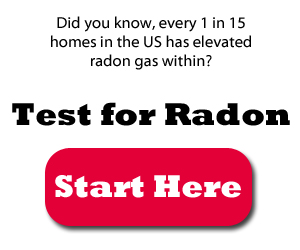When it comes to real estate, the homeowners are obligated to provide radon testing information before completing a transaction in most states. In circumstances where no information is available, the buyer can generally convince the seller to pay for testing – and potential issues – as part of the sale. The minor details can be ironed out between the buyer and seller with the help of realtors, home inspectors and contractors.
Testing a bank owned property for radon is a different story entirely.
What Happens With Bank Owned Properties?
Unfortunately, when a transaction involves a bank owned property it’s the buyer’s responsibility to test a home and take action if necessary. This is because most foreclosures, or bank owned properties are sold as-is. Depending on the state, the seller is not required to provide information about the home such as radon test results.
Luckily, it’s relatively inexpensive to have a home tested for radon. In addition, if a problem is discovered, a mitigation system can usually be put into place for anywhere from $1,000 – $2,000. As far as costs go for renovations or repairs, radon mitigation is a pretty cheap and easy fix.
On some rare occassions, the bank owned properties will be covered by different things such as radon issues, structural damage and more. That said, it’s the exception more than it is the rule. If you’re looking for homes and one you’re interested in is bank owned, be aware that you may have to pay for testing and mitigation out of pocket. As mentioned above though, neither of those things are expensive.
Testing a Bank Owned Property for Radon
If you handle the home inspection process properly you may be able to get the home tested for radon at the same time. However, short term tests are less accurate than long term ones and they will not provide an average radon level reading in most cases. They will simply tell you whether or not there’s a potential problem
Even if a short term test returns elevated readings, we recommend testing at least one more time at a later date and then perhaps even performing a long term test. For peace of mind, you can hire a mitigation contractor to test the property and they will decide what kind of test to use. A lot of times they will even bring the appropriate equipment to give you in-depth readings on the spot – whereas most DIY tests require the air samples to be mailed to a remote lab. Tests that are mailed, take a bit longer to be returned and are not ideal for fast moving real estate transactions.



